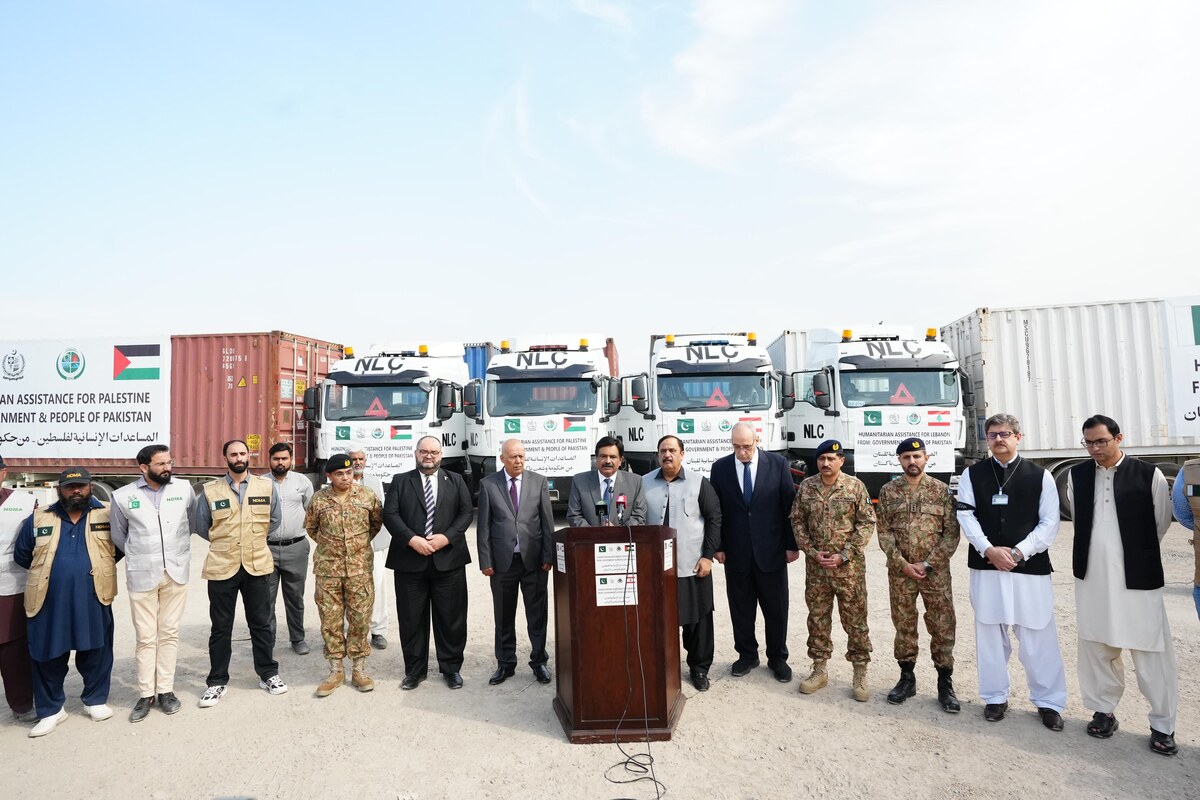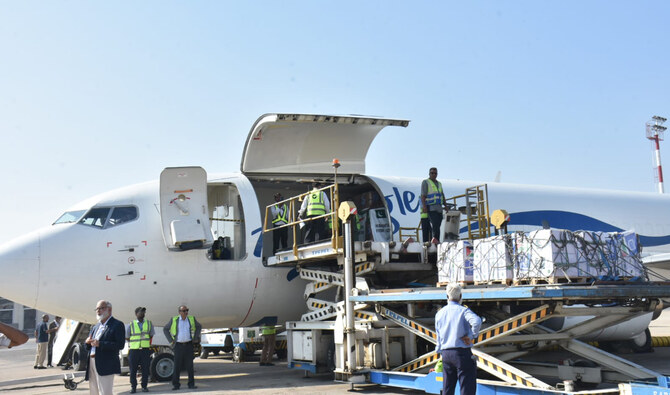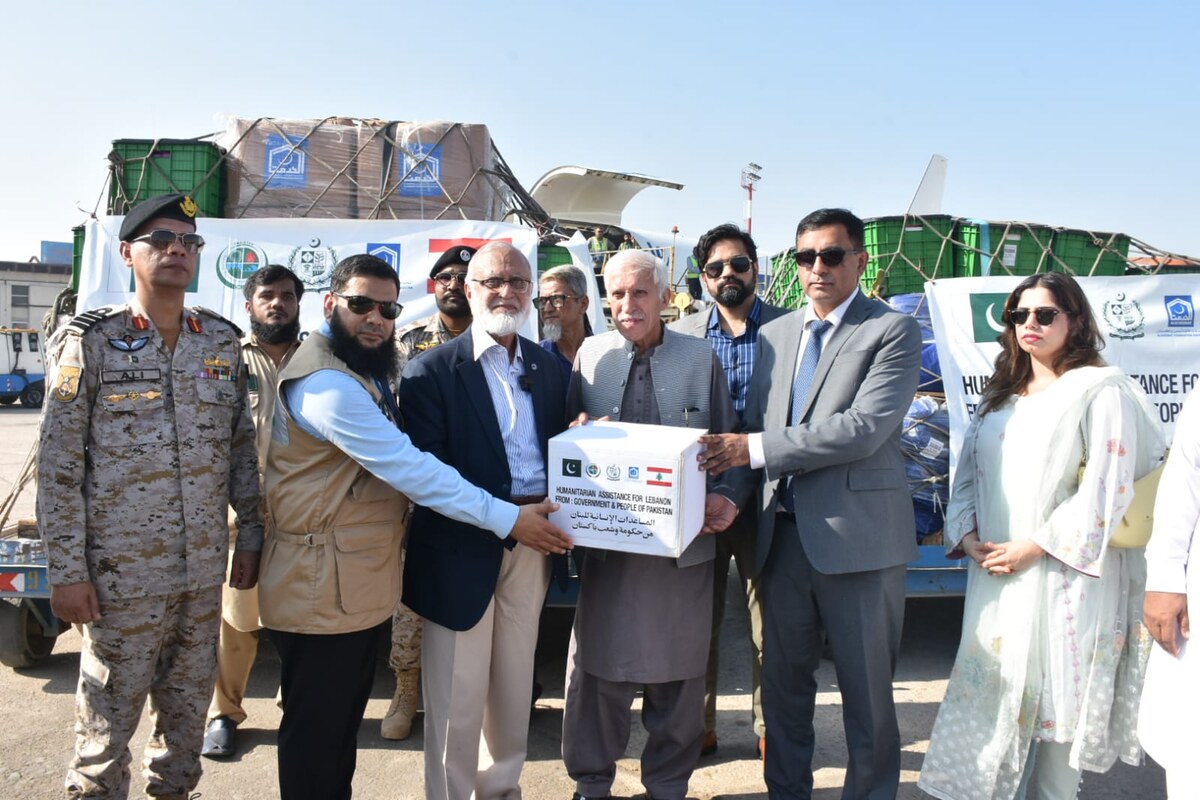ISLAMABAD: Pakistan’s National Disaster Management Authority (NDMA) on Sunday dispatched the 15th and 16th consignment of relief items for the war-affected people of Gaza and Lebanon, vowing to continue relief supplies to the areas amid Israel’s ongoing military campaigns.
The consignments were dispatched through road convoys from Islamabad to Amman in Jordan for the people of Gaza and Beirut. The relief items included 100 tons each of winterized tents and blankets, the NDMA said in a press release.
“In total 1,598 tons of relief items have been dispatched to affected people of Gaza and Lebanon,” the NDMA said.

In this handout photo, taken and released by Pakistan’s National Disaster Management Authority on October 27, 2024, officials hold press briefing as trucks of relief goods being dispatched to Gaza and Lebanon, in Islamabad. (Photo courtesy: NDMA)
The send-off ceremony was held at Islamabad International Airport. Parliamentarians Malik Ibrar and Raja Qamar ul Islam, Palestinian Ambassador to Pakistan Zuhair Darzaid and Lebanon’s Ambassador to Pakistan Ghassan Khatib were present at the ceremony.
“During the ceremony, the Parliamentarians emphasized the urgent need to provide relief to the war-affected populations of Palestine and Lebanon, considering the ongoing conflict and the needs of the affected communities,” the NDMA said.
“They reaffirmed the Government of Pakistan’s commitment to supporting their brothers and sisters in distress and stressed the importance of collaboration by welfare organizations and the Pakistani public in strengthening these efforts.”

In this handout photo, taken and released by Pakistan’s National Disaster Management Authority on October 27, 2024, airport officials load consignment of relief goods being dispatched to Lebanon, in Karachi. (Photo courtesy: NDMA)
Earlier on Sunday, Pakistan dispatched the 14th consignment of relief items from the southern port city of Karachi to Beirut.
Pakistan has also set up a special account titled: “Prime Minister’s Relief Fund for Gaza and Lebanon,” under PM Shehbaz Sharif’s directions, for donations for the people of Gaza and Lebanon.
Pakistan does not recognize nor have diplomatic relations with Israel and calls for an independent Palestinian state based on “internationally agreed parameters” and the pre-1967 borders with Al-Quds Al-Sharif as its capital.

In this handout photo, taken and released by Pakistan’s National Disaster Management Authority on October 27, 2024, Pakistani government and Al-Khidmat Foundation officials gesture for a group photo next to consignment of relief goods being dispatched to Lebanon, in Karachi. (Photo courtesy: NDMA)
Since the beginning of Israel’s war on Gaza, Pakistan has repeatedly raised the issue at the United Nations, the Organization of Islamic Cooperation (OIC) and other multilateral platforms and demanded international powers and bodies stop Israeli military actions in Gaza.

















